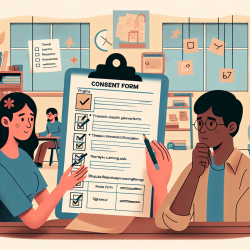In the realm of special education, navigating the intricacies of consent can be a challenging task, especially when parents disagree. This blog aims to shed light on the requirements and procedures for parental consent in Virginia, providing clarity for educators and parents alike.
What is Consent?
According to the Virginia Regulations, consent means:
- The parent(s) or eligible student has been fully informed of all relevant information in their native language or other mode of communication.
- The parent(s) or eligible student agrees in writing to the activity, describing the activity and listing any records to be released and to whom.
- The parent(s) or eligible student understands that consent is voluntary and can be revoked at any time.
When is Consent Required?
Informed parental consent is required before:
- Conducting an initial evaluation or reevaluation, including a functional behavioral assessment.
- An initial eligibility determination or any change in categorical identification.
- Initial provision of special education and related services to a child with a disability.
- Any revision to the child's IEP services.
- Any partial or complete termination of special education and related services, except for graduation with a standard or advanced studies diploma.
- Providing a free appropriate public education to children with disabilities who transfer between public agencies in Virginia or from another state.
- Accessing a child's public benefits or insurance or private insurance proceeds.
- Inviting a representative of any participating agency likely to be responsible for providing or paying for secondary transition services to an IEP meeting.
What Happens When Parents Disagree?
The key to understanding this issue lies in the regulations' use of the term "parent(s)," indicating that only one parent is required to provide consent. If one parent provides consent for an IEP implementation and the other disagrees, the school division must proceed with the action for which consent has been given.
The parent who disagrees has the option to use dispute resolution mechanisms such as mediation and due process to address their concerns. However, in the meantime, the school division is obligated to rely on the consent that has been provided.
Practice Tip
When dealing with parents who are not married or do not live together, school personnel must ensure that both parents have equal rights regarding educational decisions. The Prior Written Notice (PWN) can be a valuable tool to document the positions of both parents. It should include:
- The contentious issues as well as those reflecting consensus.
- Information on dispute resolution options such as mediation, complaints, and due process.
For more information, please follow this link.










